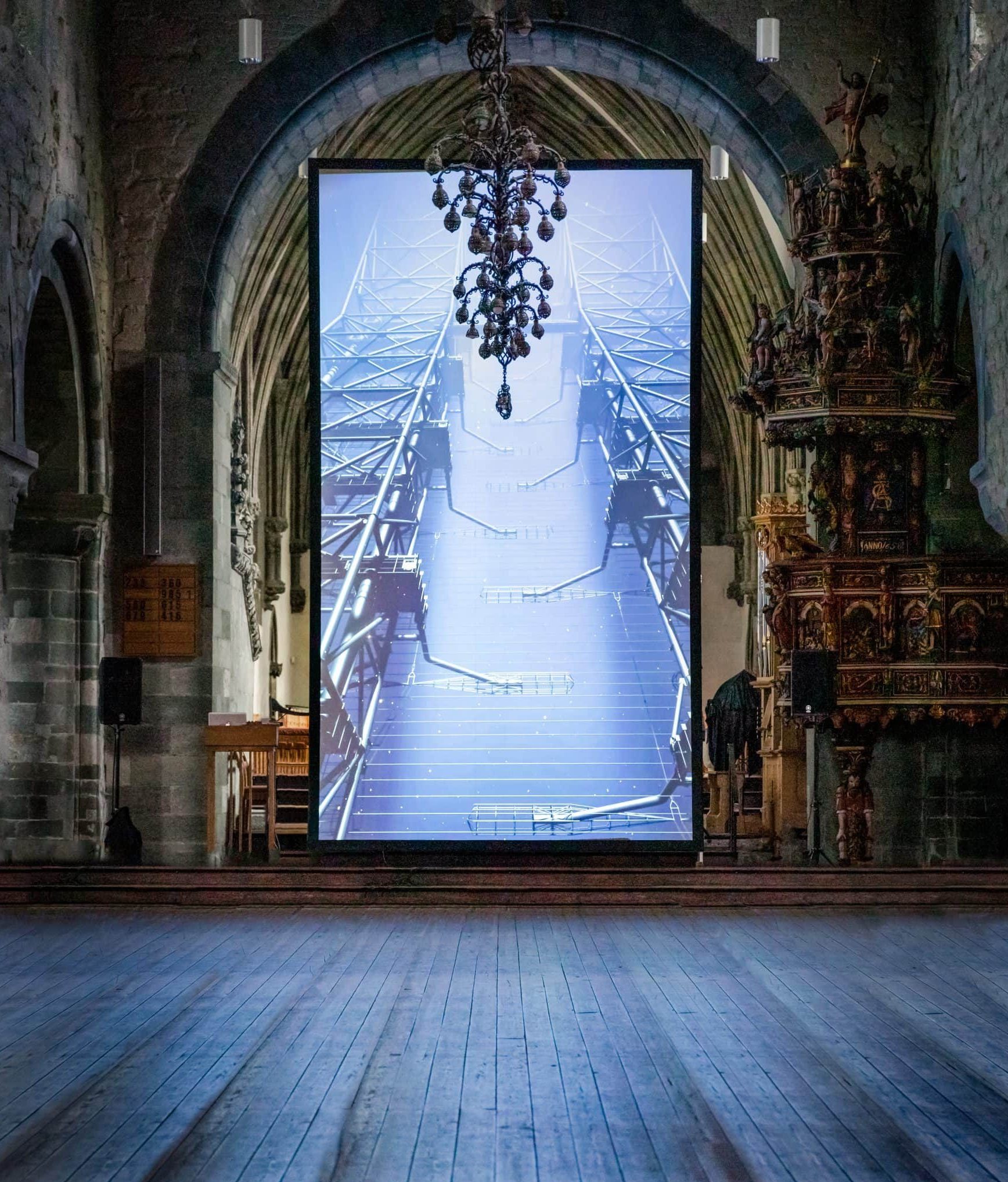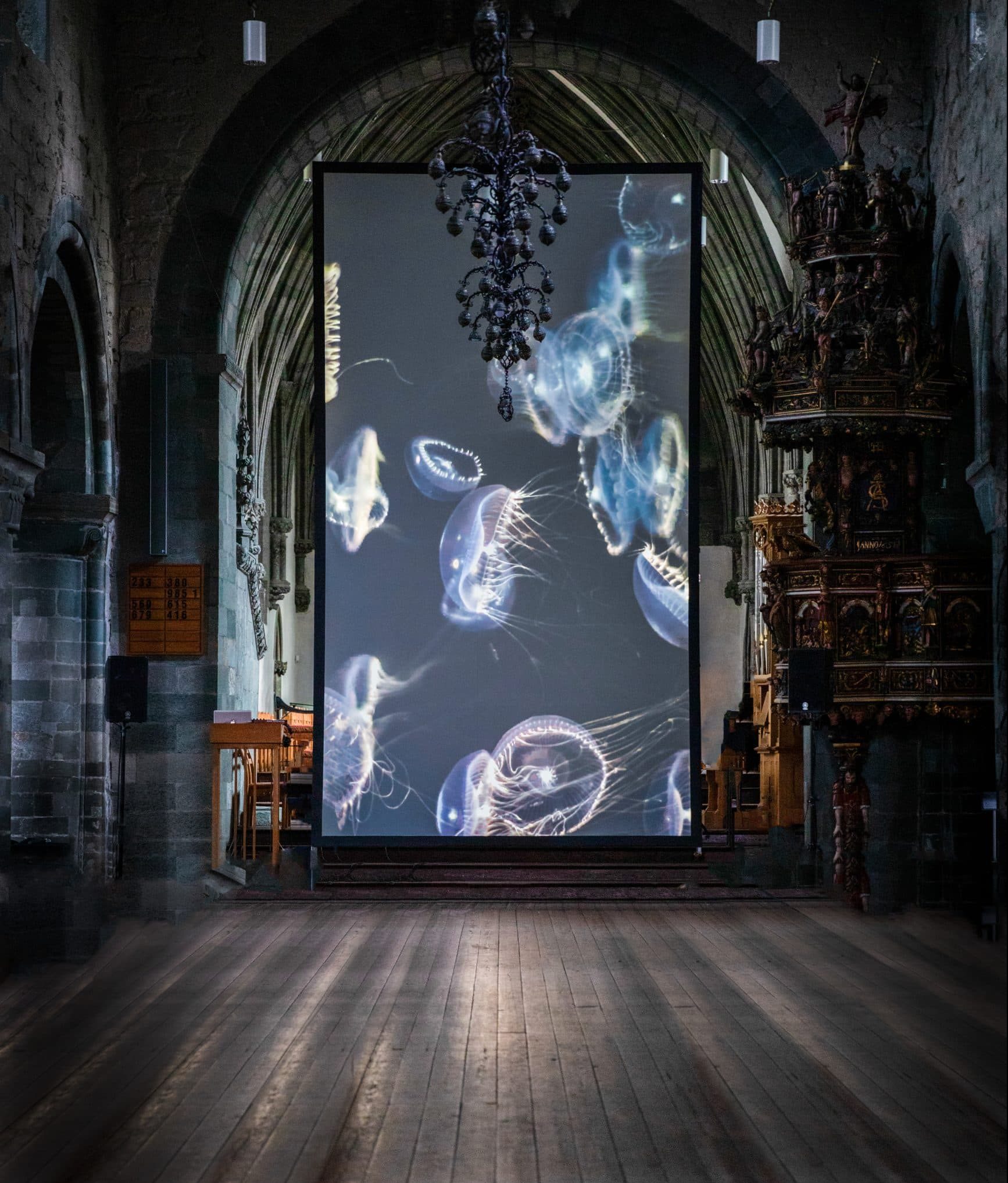
- - MASP EXHIBITION - VIDEO ROOM: EMILIJA ŠKARNULYTĖ (BR), 10.10.2025 - 11.23.2025
- - THE NEW ORCHESTRA. GROUP SHOW AT MUSEO DELLA MONTAGNA (IT), 30.10.2025 - 31.05.2026
- - BALTIC | ESCAPING WITH ČIURLIONIS SYMPOSIUM AT YALE MACMILLAN CENTER (US), 30-31.10.2025
- - SOLO SHOW: EMILIJA ŠKARNULYTĖ - KUNSTHAUS GRAZ (AT), 08.11.2025 - 15.02.2026
- - MARINE ECOLOGIES EXHIBITION AT BALTIC (UK), 8.11.2025 - 03.05.2026
- - MUNCH TRIENNIAL ‘ALMOST UNREAL’ (NO), 15.11.2025 - 22.02.2026
- - SOLO SHOW AT TATE ST IVES (UK), 06.12.2025 - 12.04.2026
- - IMMERSIVE SINGLE-CHANEL PIECE BY EMILIJA ŠKARNULYTĖ (CH), 22.08.2026 - 08.11.2026

- Riparia
- Hypoxia
- Penumbra, Fondazione in Between Art Film, 2022
- Chambers of Radiance, Radvila Palace Museum of Art, 2022
- Eternal Return, Tate Modern, 2021
- t 1/2, Den Frie Centre of Contemporary Art, 2021
- Sunken Cities, Kunsthaus Pasquart, 2021
- Circular Time. For Aleksandra Kasuba, National Gallery of Art, 2021
- Chambers of Radiance, The PinchukArtCentre, 2020
- Screen City Biennial, 2019

Emilija Škarnulytė is a Lithuanian-born artist and filmmaker. Working between the realms of the documentary and the imaginary, Škarnulytė makes films and immersive installations exploring deep time and invisible structures. She works in realms that range from the cosmic and geological to the ecological and political.
She most recently presented works at MoMA PS1, Palais de Tokyo, Louisiana MoMA, Villa Medici, MORI Art Museum, Kiasma, Gwangju Biennale, Helsinki Biennale, Penumbra. Her work was presented in solo exhibitions at Kunsthall Trondheim (2024), Canal Projects, NYC (2024), Kunsthaus Göttingen (2024) Ferme-Asile, Sion (2023); Kunsthaus Pasquart, Biel/Bienne (2021); Den Frie, Copenhagen (2021); National Gallery of Vilnius (2021); Künstlerhaus Bethanien, Berlin (2017); Contemporary Art Centre CAC of Vilnius (2015). An upcoming show at Tate St Ives will open in October 2025.
Prizes awarded to her include the 2023 Ars Fennica Award and the 2019 Future Generation Art Prize. She represented Lithuania at the XXII Triennale di Milano and participated in the Baltic Pavilion at the 2018 Venice Architecture Biennale. She has films in the collections of the Centre Pompidou, Kadist Foundation, Kiasma, Fondazione in between Art and Film, IFA, HAM, FRAC Corsica, LNMA, MO Museum, and private collections. Her works have been screened at the Tate Modern and Serpentine Gallery in London, Centre Pompidou in Paris, Museum of Modern Art in New York, and numerous film festivals, including Oberhausen, Visions du Réel, Rotterdam, Busan, among many others.
She is a founder and currently co-directs Polar Film Lab, a collective for analogue film practice located in Tromsø, Norway and is a member of the artist duo New Mineral Collective.



Screen City Biennial, Stavanger, Norway
2019 10 17 – 10 30
Deep Point Cloud had been commissioned by Screen City Biennial and was premiered during Ecologies – lost, found and continued.
With the theme, Ecologies – lost, found and continued, the Biennial engages a post-anthropocentric worldview: it searches for ecologies that may be ‘lost’ to the dominant imaginary of the modern, rationalized Western society and found in what by some is considered to be the peripheries of this. However, perhaps these are not peripheries but rather deep-rooted centers of knowledge which could guide us towards more sustainable, conscious and spiritually anchored futures, if continued. Bringing these ecologies forth through art, the Biennial asks: how can non-anthropocentric positions and holistic knowledge systems be continued as foundations on which we can move onwards––be brought into new context, inspire processes of innovation, as well as ways of presenting and engaging art?



